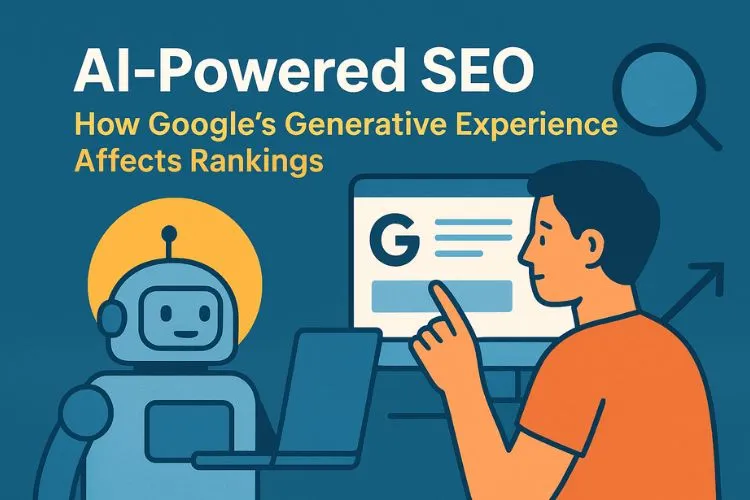Remember when SEO used to be about sprinkling keywords and hoping for the best? Well, Google’s new Generative Experience is rewriting that rulebook. Today, even an SEO Company in Vadodara must adapt to AI-driven search landscapes to stay relevant. But how exactly is this generative twist changing rankings? Let’s unpack it.
What is Google’s Generative Experience?
In simple terms, it’s Google’s attempt to become less of a search engine and more of an “answer engine.” Instead of just showing you ten blue links, it now uses generative AI to summarize, suggest, and even predict what you want. It feels like chatting with a super-smart assistant who’s constantly learning.
Why Rankings Aren’t What They Used to Be
Traditional ranking factors like backlinks, keyword density, and technical SEO still matter—but they no longer tell the whole story. With generative results, Google is prioritizing:
- Contextual authority – Content must demonstrate expertise and relevance to user intent.
- User engagement – Dwell time, clicks, and interactivity weigh heavier than static page metrics.
- Multi-format signals – AI reads images, videos, and structured data, not just text.
How AI-Powered SEO Differs from “Old SEO”
Let’s think of old SEO as running a marathon: steady pacing, training, and patience got you results. AI-powered SEO, on the other hand, is more like surfing—you’re riding unpredictable waves, adjusting quickly, and spotting the next big swell before anyone else.
Key Shifts to Notice
- Content Quality: Depth and credibility matter more than ever. Thin or generic posts won’t make it into AI answers.
- Entity Optimization: Google now cares more about “who” and “what” you are than simple keyword mentions.
- Conversational Keywords: Long-tail queries and natural phrasing feed AI better than robotic, exact-match phrases.
How Businesses Should Adapt
If you’re running an e-commerce store, a local café, or managing campaigns for a Digital Marketing Agency India, the game plan is the same: adapt fast. Here’s how.
Practical Steps
- Audit your content for E-E-A-T (Experience, Expertise, Authoritativeness, Trustworthiness).
- Incorporate multimedia—videos, infographics, podcasts—to increase contextual signals.
- Use structured data to help AI read and categorize your content correctly.
- Experiment with conversational blog formats that align with AI’s summarization patterns.
According to a recent Pew Research study, over 60% of U.S. adults already notice AI summaries in search results, which means this trend is only accelerating. Ignoring it isn’t an option.
FAQ
How does AI affect SEO rankings?
AI shifts focus from keyword stuffing to context, authority, and user engagement. Rankings now depend on how well your content aligns with generative search patterns.
Is traditional SEO still relevant in 2025?
Yes. Technical SEO, backlinks, and keyword research remain essential foundations. But AI-powered signals add another competitive layer businesses must consider.
What industries benefit most from AI-powered SEO?
Industries with complex, research-heavy topics—like healthcare, finance, and education—see the biggest benefits since AI highlights detailed, authoritative content.
Can small businesses compete in AI-driven search?
Absolutely. Smaller businesses can win by creating niche, hyper-specific, and conversational content that answers user questions better than broad corporate websites.
Final Thoughts
Google’s Generative Experience isn’t just a feature—it’s a paradigm shift. Businesses that embrace AI-powered SEO will ride the wave, while those stuck in old methods risk sinking. The real winners will be the ones who combine timeless SEO practices with forward-looking, AI-ready strategies.
Also Read >> Google Has Introduced a Retail Search Feature for Ecommerce Sites
Blog Development Credits:
This blog was envisioned by Amlan Maiti, crafted with insights from tools like ChatGPT, Gemini, and Copilot, and finally optimized by Digital Piloto PVT Ltd.





